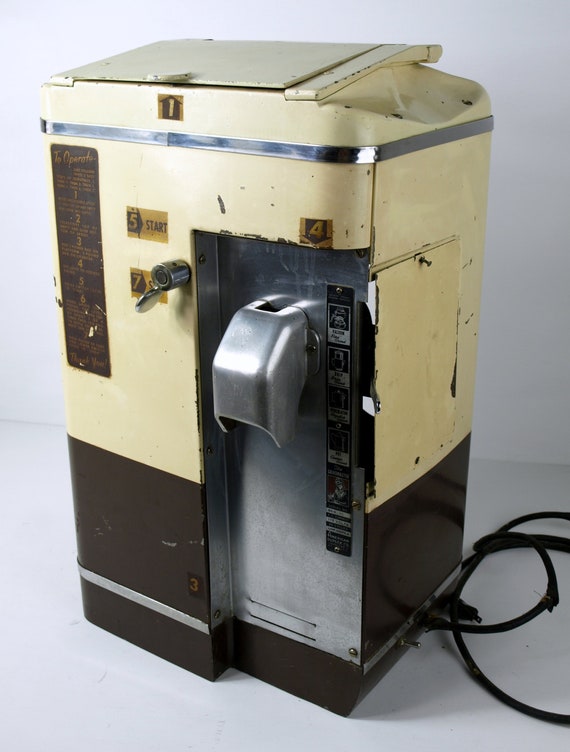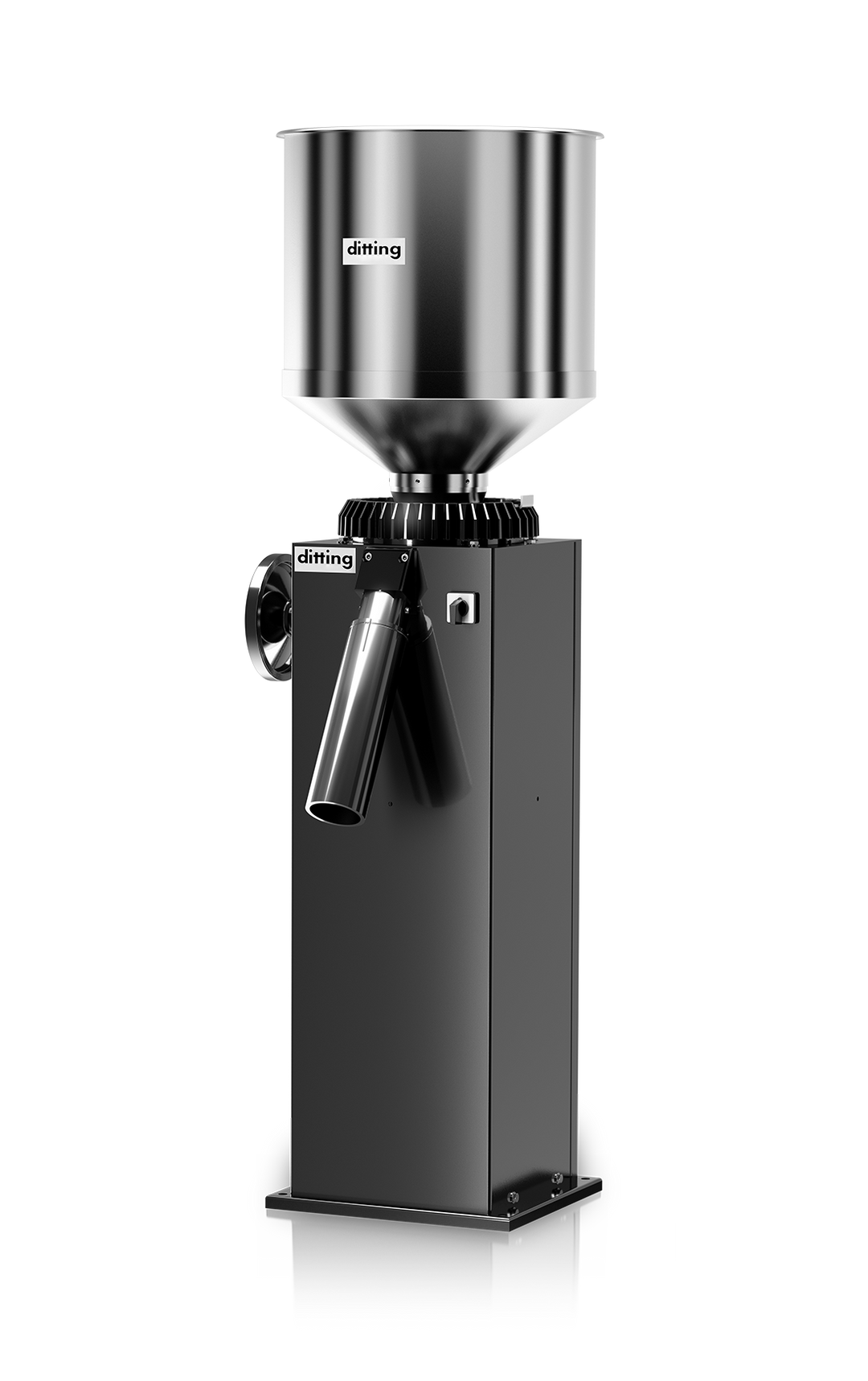Just How to Select the Perfect Industrial Coffee Mill for Your Service
Selecting the suitable industrial coffee mill for your company is a complex choice that requires cautious factor to consider of numerous essential factors. In addition, understanding the various types of mills readily available can substantially affect your operational effectiveness.
Assess Your Grinding Demands
When choosing a commercial coffee grinder, one need to initially evaluate their grinding demands to guarantee ideal performance and consistency. This preliminary analysis entails recognizing the volume of coffee to be refined daily, along with the wanted work dimension for numerous developing approaches. A high-capacity mill might be needed for organizations offering huge amounts of coffee, while smaller sized operations might find a more compact version enough.
In addition, it is important to consider the kinds of coffee beans being made use of, as various beans might need particular grinding techniques to achieve the ideal taste profile. For example, oily beans might demand a grinder developed to deal with such characteristics without clumping or overheating.
Another essential aspect is the needed work uniformity. Specialty coffee businesses usually demand precise work sizes to boost extraction and taste, making it crucial to choose a mill that can provide consistent results. Finally, evaluating the offered space and electric requirements will certainly help in picking a grinder that fits flawlessly into your functional workflow. By completely analyzing these elements, organizations can make informed choices that align with their coffee grinding requirements, ultimately causing an exceptional item and pleased consumers.
Understand Grinder Kind
Recognizing the numerous sorts of industrial coffee grinders is important for making an educated option that fulfills particular operational requirements. There are mainly two classifications of grinders: blade grinders and burr grinders.
Blade grinders utilize spinning blades to chop the coffee beans, resulting in an inconsistent grind size - Industrial Coffee Grinder. While they may be more inexpensive, they are frequently not appropriate for industrial applications where precision is important
On the other hand, burr grinders provide a more uniform work by squashing the beans in between 2 surfaces. They can be additional categorized into flat burr and conelike burr mills. Apartment burr mills supply a regular work dimension and are normally preferred for espresso preparation, while conelike burr mills are flexible and can manage a variety of brew methods, from coffee to French press.
When picking a mill, think about the particular needs of your organization, consisting of desired grind uniformity, production volume, and the kinds of coffee beverages you plan to provide - Industrial Coffee Grinder. Each grinder type has its limitations and benefits, so comprehending these subtleties makes it possible for educated decision-making that straightens with functional goals
Evaluate Grind Dimension Uniformity
Attaining grind dimension uniformity is essential for creating top notch coffee, as variations in fragment dimension can significantly impact extraction and flavor. When picking an industrial coffee grinder, it is crucial to assess just how well the maker keeps harmony in work dimension throughout various sets. Irregular grind sizes can lead to unequal extraction, resulting in a mug that might taste weak or extremely bitter.
To examine grind dimension uniformity, take into consideration grinders with features see here such as adjustable work settings and top quality burrs. Burr mills, in certain, stand out in generating uniform particle dimensions compared to blade grinders. The product and shape of the burrs play a crucial role, with stainless steel and ceramic alternatives offering sturdiness and accuracy.

Take Into Consideration Production Ability
In the hectic globe of coffee manufacturing, considering manufacturing capability is paramount for businesses intending to meet demand without compromising top quality. The production capacity of a commercial coffee mill directly influences a firm's capability to fulfill orders efficiently, manage inventory, and react to rising and fall market trends.
When assessing manufacturing capability, it is important to assess the mill's result rate, generally measured in extra pounds per hour. This dimension must align with your organization's forecasted sales volume and growth targets. A café with a high turn over might call for a grinder that can process numerous hundred pounds daily, while a smaller sized procedure may be enough with a reduced capacity model.
Additionally, take into consideration the sort of coffee being refined. Various beans and blends might influence grinding speed and efficiency, requiring a mill with the ability of handling diverse manufacturing requirements. It's also worth factoring in the grinder's ability to preserve regular high quality under high output problems, as any type of fluctuations can affect the end product.
Ultimately, picking a grinder that matches your service's manufacturing capability will ensure you remain responsive and competitive to consumer assumptions.

Budget Plan and Maintenance Variables
When examining the right commercial coffee upkeep, grinder and budget aspects play a significant duty in the general decision-making process. A preliminary investment in a high-quality mill can yield long-term advantages, however it's necessary to develop a clear budget that aligns with your company's functional requirements. Take into consideration both the acquisition cost and possible operational expenses, such as power consumption and substitute components.
Industrial coffee mills call for routine upkeep to make certain optimum performance and longevity. Assess the maker's referrals for maintenance, consisting of cleaning schedules and components substitute, as these will affect long-term functional expenses.

Buying a mill that is resilient yet simple to keep can conserve money in time. While lower-priced choices may be tempting, they may sustain greater upkeep costs and decreased performance. Eventually, stabilizing first prices with lasting upkeep and operational effectiveness will guide you to the very best selection for your service's coffee grinding requirements.
Conclusion
Choosing the perfect commercial coffee mill requires a detailed evaluation of grinding needs, grinder kinds, grind dimension consistency, production capability, and financial considerations. By focusing on these factors, services can guarantee the acquisition of a reputable, reliable grinder that satisfies particular operational demands. An appropriate mill not only improves the quality of the coffee created but likewise adds to the general success and productivity of the venture. Lasting efficiency and maintenance ease should remain main to the decision-making process.
Specialized coffee businesses frequently require specific grind sizes to boost removal and taste, making it important to choose a mill that can deliver uniform results. Flat burr grinders use visit a constant work dimension and are typically favored for espresso preparation, while conical burr grinders are flexible and can manage an array of brew approaches, from coffee to French press.
When selecting a commercial coffee grinder, it is vital to review how well the equipment keeps harmony in grind dimension throughout various batches. Burr mills, in specific, stand out in creating uniform bit sizes compared to blade grinders.Choosing the excellent commercial coffee mill necessitates a complete examination of grinding requirements, grinder kinds, grind size uniformity, production ability, and financial considerations.